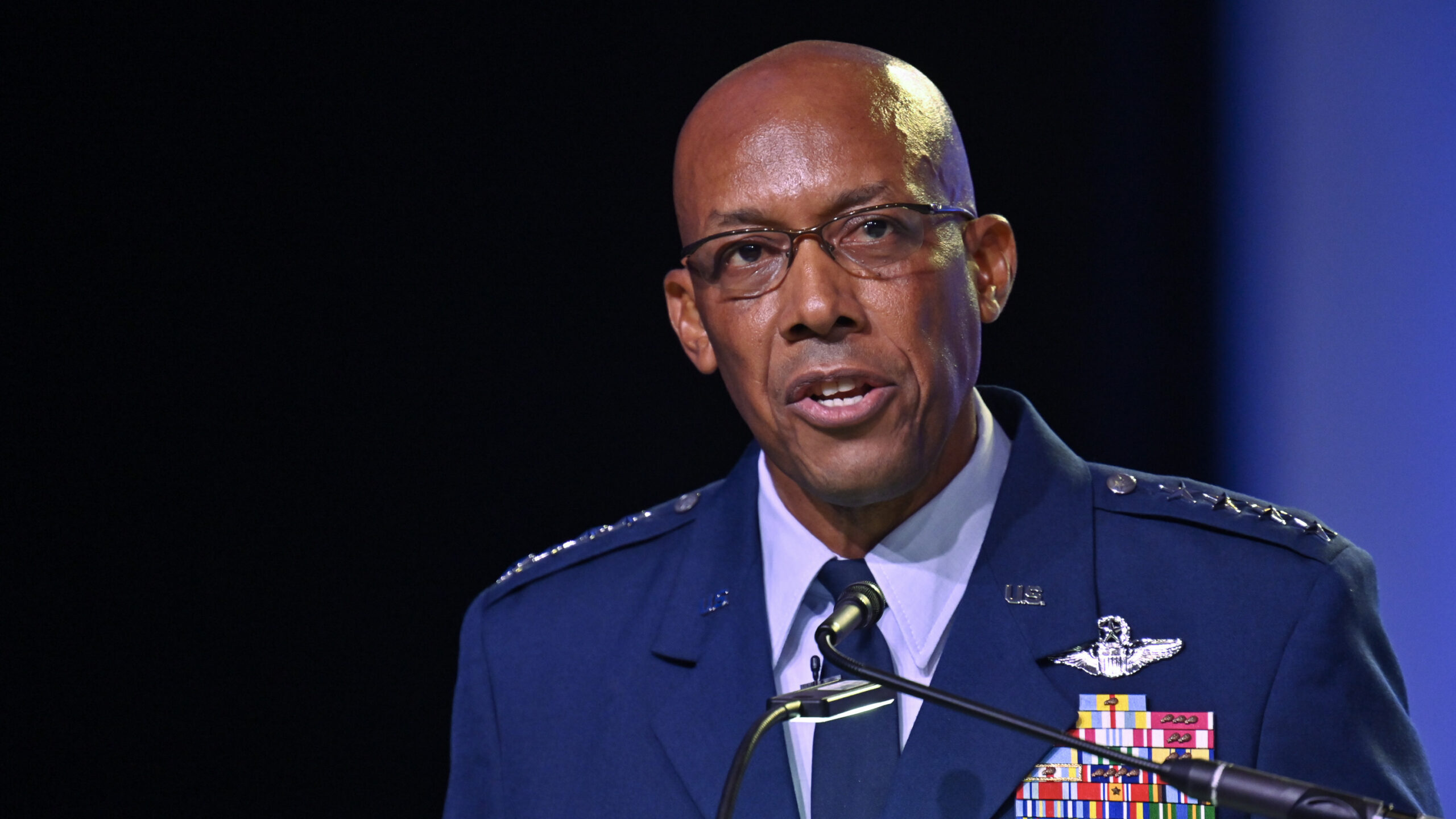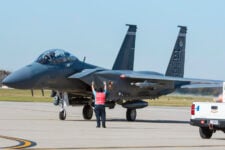
Then-Air Force Chief of Staff Gen. CQ Brown, Jr. delivers his “Accelerate Change to Empowered Airmen” speech during the 2021 Air Force Association Air, Space and Cyber Conference in National Harbor, Md., Sept. 20, 2021. (US Air Force photo by Eric Dietrich)
WASHINGTON — The US military will be forced to delay nuclear modernization and developing infrastructure in the Pacific, among other challenges, if Congress does not pass fiscal year 2024 funding over the next year, according to Gen. CQ Brown, the Chairman of the Joint Chiefs of Staff.
In a letter to Senate Appropriations Committee chair Patty Murray, D-Wash., Brown outlined some top-level issues the department will face if Congress decides to operate under a full-year continuing resolution, or CR.
“DoD has never operated under a year-long CR; it would be historically costly to the Joint Force. In a CR, the DoD’s actual buying power is significantly impacted and degraded,” Brown wrote in the letter, first reported by Politico. “As I have said previously, we cannot outpace our pacing challenge [China] while under a CR.”
Under a CR, the government is funded at previous-years level and no new starts can be launched. Congress has twice avoided a shutdown by passing a CR, with the Pentagon’s budget now scheduled to run out on Feb. 2. Even if a full budget was to be passed at that point, the department will have lost a third of its fiscal year.
It’s become an annual tradition in Washington for defense leaders to start ringing the bell about how bad a full-year CR would be. And oftentimes those warnings seem overly dire, given that a full-year CR has never actually occurred. However, the current situation in Congress — as well as the true start of the 2024 election cycle — has made the prospect of a CR lasting through at least next October feel more real than in past years.
Per Brown, “thousands” of programs would be impacted. Among the items he lists in his letter:
- Brown claims a $5.8 billion shortfall in funding for military personnel, which would also require delaying service member moves around the country. That would “exacerbate recruiting and retention challenges” — already a major concern for the DoD. Similarly, any new military construction on bases would be delayed, as new buildings are fully considered new starts.
- A delay in the procurement of the B-21 Raider stealth bomber.
- According to Brown, 30 percent — $9.7 billion — of the Navy’s current shipbuilding budget request could not be spent, and the Navy would have to cancel or delay ship depot maintenance.
- Only one of two requested Virginia-class submarine contracts could be awarded. The CR “could” also delay awarding the second Columbia-class ballistic missile submarine.
- A year-long CR would “jeopardize” $1.3 billion in planned investments for the military’s Pacific posture, including “forward basing, sensor-to-shooter capabilities, long range radars, hypersonic defense and investments in classified capabilities.” US Indo-Pacific Command has been seeking major investments into its region in order to prep for potential conflict with China. And the Pentagon in its budget request sought $9.1 billion for the Pacific Deterrence Initiative.
- DoD would lose the ability to award multi-year procurement contracts for munitions critical for INDOPACOM. In its FY24 budget request, the Pentagon sought the rights to award seven different weapons multi-year procurement contracts in order to encourage industry to invest in increasing production rates.
“We owe our servicemembers the tools they need to be successful,” Brown concludes. “We need full appropriations to stay ahead of pacing, acute and unforeseen challenges.”
Expect to hear a lot more about the impact of the CR on defense at this weekend’s Reagan National Defense Forum in Simi Valley, Calif.
Australia tops up Ukraine military aid with $100M
Australia has already supplied Ukraine with 120 Bushmaster vehicles, six 155mm howitzers, 56 M113 armored vehicles, 14 special operations vehicles and its signature cardboard drones.


























